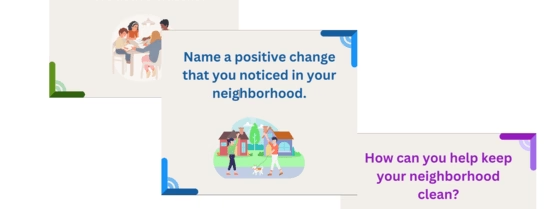TeachEUR
Support
The card game serves as a game-based approach for the promotion and development of active citizenship and entrepreneurial skills. Moreover, the card game enhances the employability of the players, thereby increasing their opportunities in the labour market.
About the game
The Youth Empowerment Cards (Active Citizenship & Youth Entrepreneurship) is a dynamic and interactive educational tool designed to inspire critical reflection, discussion, and action among (disadvantaged) young people around the theme of active citizenship and youth entrepreneurship. Through a series of cards which include questions, players are engaged in meaningful conversations, about volunteering, environmental issues, community activities, social media, voting and active citizenship, pitching and idea, monetizing hobbies, basic guidelines for young entrepreneurs, creativity and the use of Artificial Intelligence.
Objectives
The objective of the game is to engage (disadvantaged) youth in learning about entrepreneurship and active citizenship through a fun and educational card game.
Game mechanics
- Players: The game is best played in small to medium-sized groups (4–12 participants), allowing for rich discussion, peer learning, and inclusive participation. It can also be adapted for one-on-one facilitation or larger group settings with breakout discussions.
- Location: The game is suitable for both formal and non-formal learning environments, such as classrooms, youth centers, community hubs, or workshops. It requires a quiet and comfortable space where participants can sit in a circle or around a table to read and discuss the cards.
- Duration: A typical game session lasts approximately 45 to 90 minutes, depending on the number of players and the depth of discussion. Facilitators may choose to use a selection of cards or multiple rounds based on time availability and learning objectives.
The facilitator needs to read the guidebook and then divides the cards in piles according to the number of groups created.
Players choose a card which includes a question and they reflect about the possible answer(s) with follow up comments, examples and further questions from the facilitator.
The game is available in English, Dutch, Greek and Romanian.
There is a guide available for the facilitator.
Downloads
The game is accessible online and can be printed in all the above-mentioned languages below, under PR3

